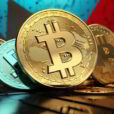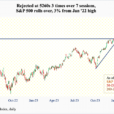Stocks Rally Sharply On Tuesday
The stock market had an amazing day on Tuesday as the S&P 500 was up 1.67%. All the sectors were in the green except real estate and utilities. Energy was the big winner as it was up 3.32%. Tech was up 2.48%. The reason stocks did so well was President Xi gave a speech in which he stated he wanted China to open up trade; he pledged to lower Chinese tariffs on automobiles. This speech can either be thought of as a reiteration of previous proposals or a sign that cooler heads will prevail in the trade dispute between China and America. I don’t know for sure what to make of this speech, but the market liked it because it checked the boxes of Trump’s demands. China will be strengthening its protection of intellectual property, it doesn’t seek to have a trade surplus, it will open up access to its financial sector, and ease restrictions on foreign ownership of firms in the auto, shipbuilding, and aerospace sectors.
Some analysts might be unsure of what this speech means, but the market works on probabilities. If the chance of a trade war declined by 15% because of this speech, stocks will reflect that by going up. If this entire battle is squashed, then I think the S&P 500 can reach a new all-time high. The market is also being hurt by weak economic data, but tariffs ending would improve the outlook for trade growth and lessen economic uncertainty.
Overview Of Macroeconomic Trends
The chart below is a great depiction of the economy since 1992. Obviously, this is just one index, so it doesn’t capture everything. The macro implied volatility index shows that the economy was relatively stable from 1992 until 2002. There were some modest spikes, but nothing major. The recession in the early 2000s was very shallow. Then from 2004 until 2007, Alan Greenspan’s easy money policy crashed volatility which eventually led to the financial crisis since his policies helped stoke the housing bubble. The massive rate cuts were from 2000 to 2004 which is right when the housing bubble heated up. Therefore, his policies amplified the bubble instead of suppressing it. Monetary policy gets part of the blame for the huge bust in 2008.












Leave A Comment